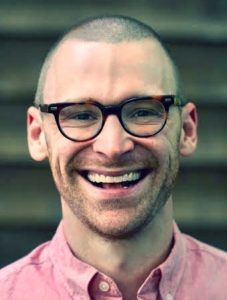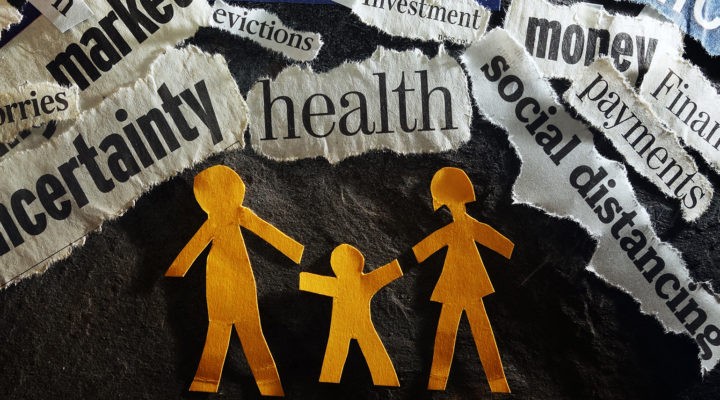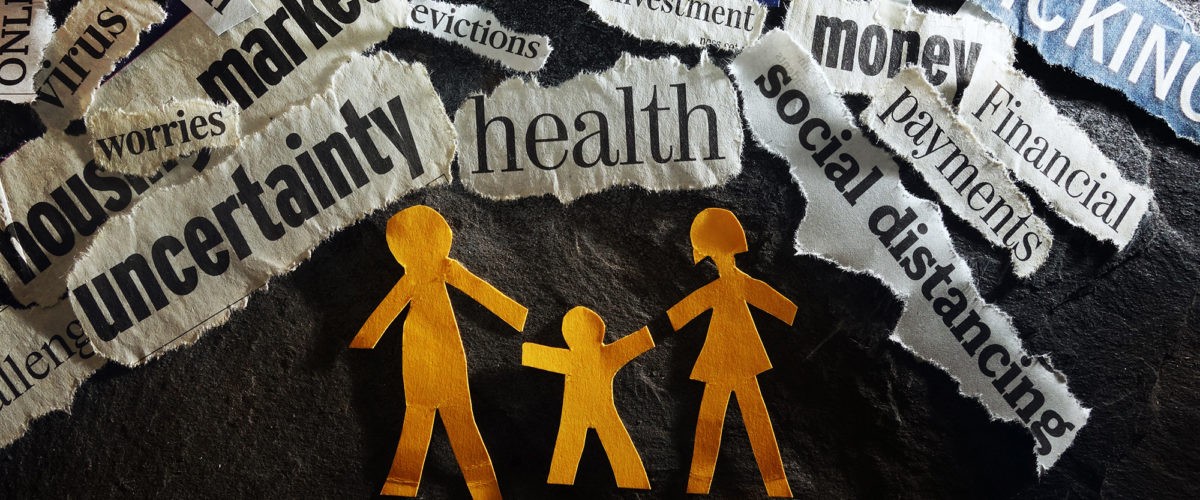My son is 6 years old and in the first grade. He loves Lego, Harry Potter, outer space and finishing books as soon as he gets them. Inexplicably, my son maintains this stubborn inquisitiveness about the world around him even though he’s been wearing a mask for almost two years, has hung out with his anxious mom and dad most weekends, and attended kindergarten last year during the apocalypse.
I’m not sure how he does it.

Eric Minton
Because after 18 months of living in a world that feels very much like that iconic sequence from Thelma & Louise where the title characters just decide to drive headlong into the Grand Canyon, I realize I no longer care about anything else but my son and my wife and my family and the few friends who still occasionally remember to text me even though I forget to text back.
I should clarify, though, my growing disinterest with the outside world isn’t from a lack of trying.
There aren’t many days where I go without scrolling my social media feed, or reading the news, or checking the weather, or talking to people about politics, sociology, theology and church, or even writing letters to my local school board or my representatives in Washington.
It’s just that, at the bottom, all of it feels emptier than normal because I honestly no longer care about the political or public health views of most people around me, or the news, or the weather, or what churches choose to believe about the complexities of our world, or the inability of many elected officials to do anything but choose to sacrifice the well-being of my community and my family on the altar of their own unending need to continue getting elected.
This despondency reached a head after I read through the recent U.N. report on the devastating impacts of humanity’s continued inability to curb fossil-fuel emissions. I think I stared off into space for probably 25 minutes. During which, I wasn’t thinking about how to fight climate change and sea-level rise but was simply reconsidering whether I would recycle at all anymore in light of soon-coming global catastrophe.
“You don’t have to be a psychotherapist (like me!) to realize that I’m probably depressed.”
You don’t have to be a psychotherapist (like me!) to realize that I’m probably depressed. Not just because our country’s been trying to kill itself (at least actively) for the last five to six years, but because when you are anxious, almost uninterruptedly, for concerted periods of time, your body can’t physically maintain its normal level of engagement. So, like a car engine stuck in first gear, you overheat. Eventually, if you ignore the warning signs for long enough, your engine turns off and forces you onto the shoulder where, I guess to keep the metaphor going, you watch Netflix in your sweatpants and scroll other peoples’ vacation footage on Instagram until you cry and (hypothetically) shame-eat a dozen original glazed Krispy Kreme donuts.
Perhaps put more clearly, after being cripplingly anxious for the last two years, my body is no longer capable of producing the required adrenaline and energy to continue persisting in movements and beliefs that lead nowhere and change nothing. I can’t convince people in my community to protect my unvaccinated son by getting vaccinated themselves, wearing masks and making common-sense health decisions that positively impact the lives of people around them. I can’t convince churches to stop covering up abuse or stop mobilizing large numbers of parishioners to fight the teaching of history in our public schools or to storm the Capitol during an attempted coup. I can’t even convince my neighbors to recycle, let alone make drastic personal and political choices that would work to greatly reduce the rising centigrade of our planet.
When everything feels hopeless, I reach for what I can control by obsessively vacuuming, or reaching “inbox zero,” or shopping online and looking on Zillow at houses I can’t afford. In darker times, I Google the best places to live if earth overheats, or consider buying an RV and homeschooling my boy in the wilderness (despite hating bugs and forgetting that there are no hybrid recreational vehicles).
“Depression and anxiety are great at noticing what isn’t working anymore, they’re just terrible at finding solutions that fix it.”
A lazy way of talking about our political opponents is to call them “selfish.” This is lazy because it isn’t true — but feels like it is. In my case, the unvaccinated and angrily unmasked aren’t selfish, they’re depressed and anxious and longing for the end of something they don’t fully understand and have no control to stop. Just like me, and you, and all of us living through something that feels like the end of the world, but (hopefully) isn’t.
An old supervisor once taught me that depression and anxiety are great at noticing what isn’t working anymore, they’re just terrible at finding solutions that fix it. What I think he meant is that when we no longer have any control to manage the situation around us, one of our reflexive impulses is to stop trying, to rest and to surround ourselves with people who matter most to us.
Depression is trying to help us with this, except that it so thoroughly saps us of energy and creativity that we can’t even muster the patience and interest to kick a soccer ball outside with the kids we’re desperate to save. Other times, when we no longer have any control to manage the situation around us, our reflexive impulse is to get active, to contact people in charge, and to sacrifice all that is within us to try and fix things. Anxiety is trying to help us with this, too, except that it so thoroughly ramps up our fight-or-flight response that we can’t do anything but yell at NPR in the morning, anxiously read the news over lunch, and stay up way too late talking with our partners about COVID case counts and ICU beds (again, hypothetically, of course).
“Anxiety and depression are normal responses to an out-of-control world requiring both sacrificial action and self-interested rest.”
Anxiety and depression are normal responses to an out-of-control world requiring both sacrificial action and self-interested rest. Rather than judging ourselves for the ways these normal responses to stress get ahold of us and turn us into people we no longer recognize, a more helpful alternative is to slow down in their presence and to listen to what anxiety and depression are teaching us about what we need most right now: sabbath rest, non-anxious, analog relationships defined by trustworthy love, and a collective willingness to bravely take responsibility for the ways our own pain often keeps us from more confidently asking for what we need and are owed from one another without despondently withdrawing from the request or violently demanding it be delivered to us.
Because when humans can regularly rest, experience love and keep ourselves safe by asking for what we need and what we are owed without allowing fear of reprisal or anxiety over rejection in an unsafe world to control us, it’s amazing what we can survive, what we already have survived, and what we will survive next.
So may you go outside without bringing your phone, may your doom-scroll be interrupted by an ear-splitting “Hey Dad!?”, and may you finally stop watching footage of that Williamson County school board meeting where everyone threatened to fight doctors because you are too busy talking to your friends on the front porch and making dinner for your family before going to bed at a reasonable time like you’ve always wanted. Because you can, you actually have control over this, and over so much else.
Eric Minton is a writer, pastor and therapist living with his family in Knoxville, Tenn. He holds a bachelor’s degree in psychology from the University of Tennessee, a master of divinity degree from Fuller Theological Seminary and a master of science degree in clinical mental health counseling from Carson-Newman University.
Related articles:
Everything’s getting on my last nerve | Opinion by Susan Shaw
Instead of sending out more anxiety, here’s a way to send out love | Opinion by Kelly Deutch
10 ways to take care of yourself because things may get worse before they get better | Opinion by Rhonda Abbott Blevins


